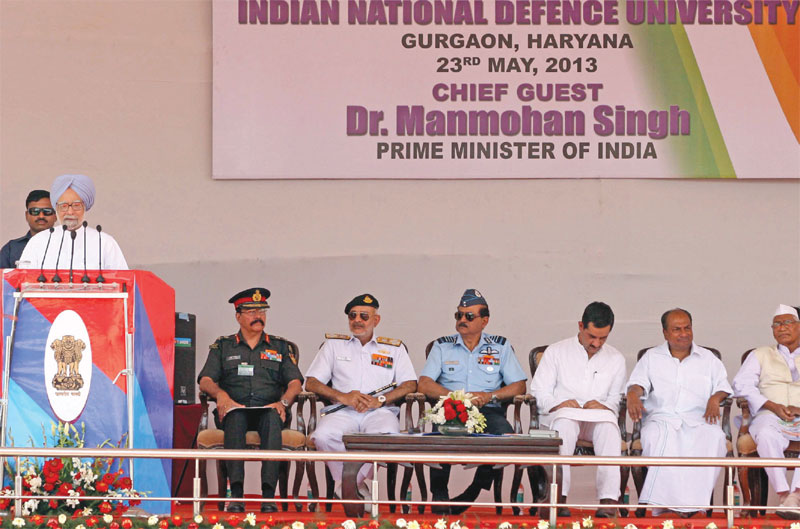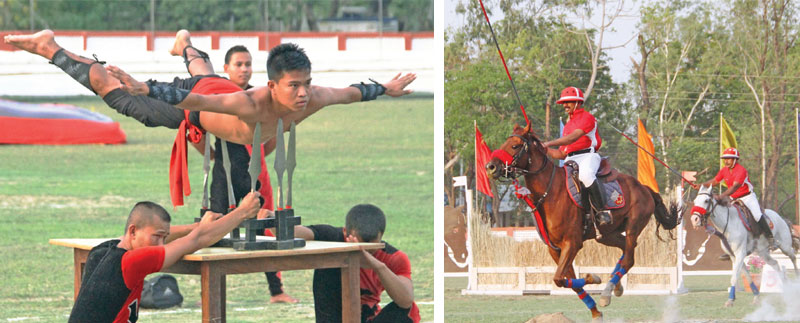It’ll not only promote higher education and research but develop strategic mindset
 Maj. Gen. Rambir Mann (retd)
Maj. Gen. Rambir Mann (retd)
The Raksha Shakti University (RSU) was established in 2009 as a state university, with the aim to provide youth with better academic qualifications in fields of counter-terrorism, anti-insurgency and cyber security. It is located in a village named Lavad, near Dahegam in Gandhinagar district. It was converted into a central university and nominated as an institution of national importance through the Rashtriya Raksha University Bill 2020 that was introduced in Lok Sabha on 23 March 2020 and passed by the Parliament in September 2020—the aim being to strengthen the broader structure of ‘Training-Research-Extension-Education (Tree)’ for the country’s police and security forces.
Similarly, the Gujarat Forensic Sciences University (GFSU) has now been upgraded from a state university to an institution of national importance, and is now known as the National Forensic Sciences University (NFSU), fully funded by the central government. It would facilitate and promote studies and research, and help achieve excellence in the field of forensic science in conjunction with applied behavioural science studies, law, criminology and other allied areas. The NFSU bill was introduced in March 2020 and approved by the Parliament in September 2020.
Contrast this with the story of the National Defence University (NDU) which was first mooted in 1967 by the Chiefs of Staff Committee (COSC). The need was reinforced in a COSC sponsored study in 1980 only to languish and re-emerge after the Kargil war in 1999, when based on the recommendations of the Group of Ministers headed by the then deputy prime minister L.K. Advani, and the Committee on the National Defence University (CONDU) under late K. Subramanyam, HQ IDS was tasked to progress the case in 2004.

The Union Cabinet accorded ‘in principle’ approval for setting up of Indian Defence University (IDU) at Binola, Gurgaon in May 2010 with land acquisition completed and foundation stone laying by the then prime minister in May 2013. This was followed by circulation of the draft parliamentary bill (INDU 2015) and inter-ministerial consultations. The objectives of the University broadly envisioned to develop and promote higher education and research in national security studies, defence management, defence technology and allied areas; to serve as think-tank contributing to policy formulation; to prepare the personnel of the national security establishments and the academic community both domestic and international, for high-level leadership, staff and policy responsibilities; and to create competencies related to national security.
The final draft bill was submitted for approval in 2017 after resolution of all aspects and thereafter, seems to have gone into limbo. Fifty-three years after the idea was first mooted, the nation still awaits a National Defence University. The Comptroller and Auditor General (CAG), in a report tabled in the Lok Sabha in August 2019, had observed that the project cost had increased from Rs 395 crore in May 2010 to Rs 4,007.22 crore in December 2017.
All nations with sizeable armed forces, defence budgets and security challenges comparable with India, have defence universities. Pakistan, in fact, has two. There is adequate debate in public domain about the importance and need for such an institution for India and it is not intended to dwell into such aspects. This article seeks to draw attention to the larger aspect of decision-making on defence matters and ‘strategic culture’ that this highlights. That the Indian Defence University continues to languish while the RSU and the NFSU have gone through like a shot speaks volumes for the effectiveness of the home ministry and the tardiness of the defence ministry.
It also clearly highlights the political weight enjoyed by the ministry of home affairs (MHA) vis-a-vis the ministry of defence (MoD) and the disproportionate importance given to policing vis-a-vis defence. Those familiar with functioning of government at higher levels understand that such delays are standard bureaucratic practice to extract their pound of flesh, perhaps by garnering post-retirement billets as is their wont. That the MoD has traditionally been agnostic to the armed forces is no secret. There are abundant examples of the same in public domain and this is perhaps another example of the same. Politically also the police impact domestic dynamics in myriad ways and thus, it is expedient to create additional promotional avenues and billets for the IAS-IPS lobby.

You must be logged in to view this content.

